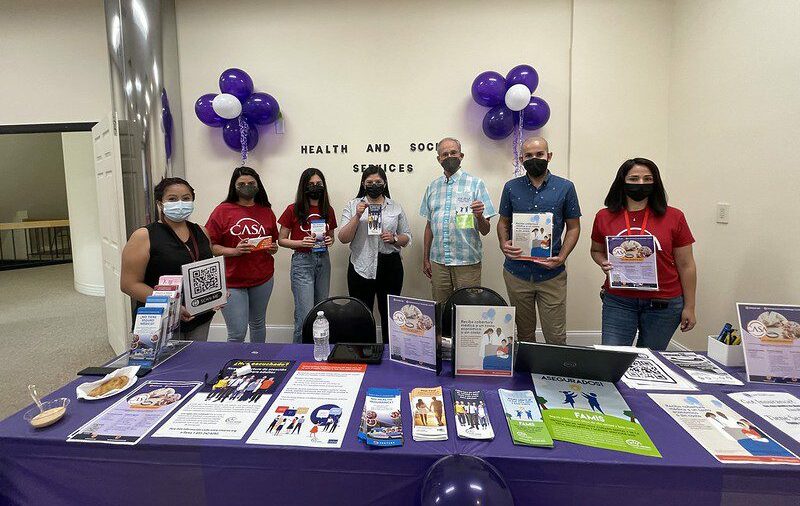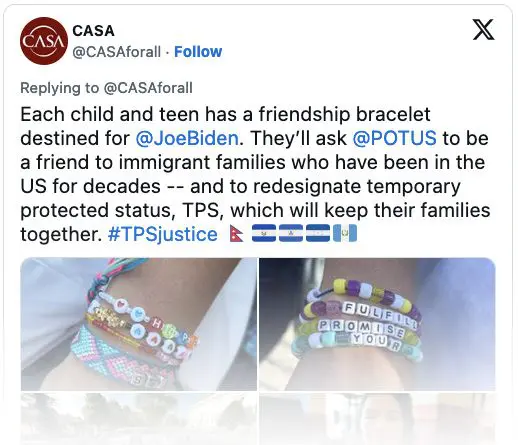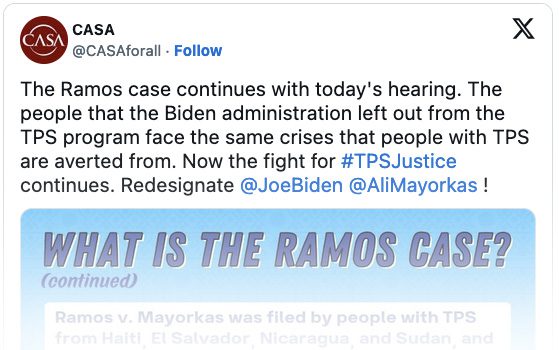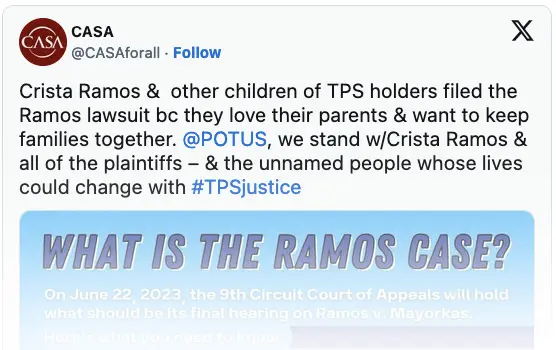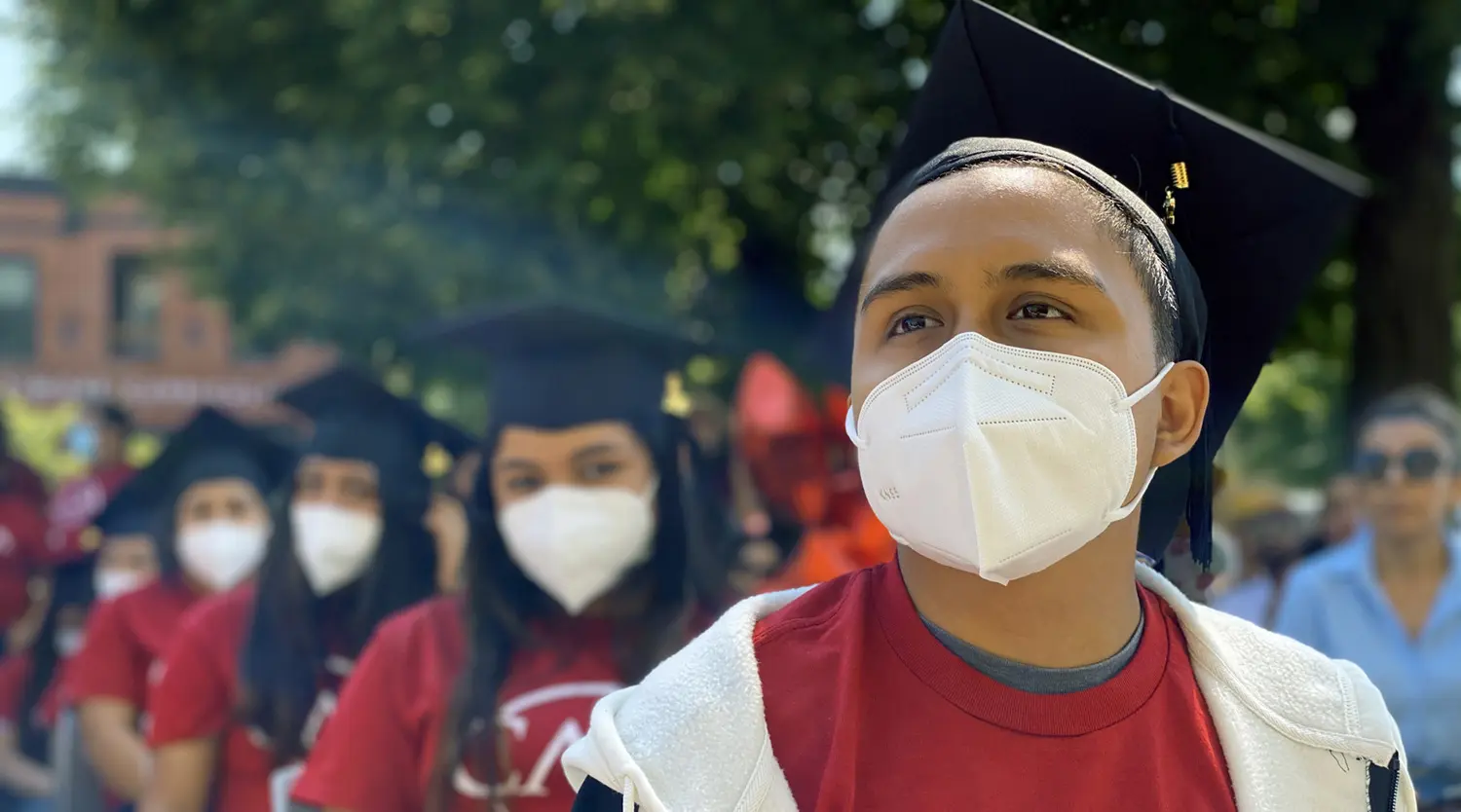
2023 Annual Report


Formation of the National TPS Action Funding Collaborative
In the early days of the Biden administration, CASA, along with many allied organizations, was deeply committed to the passage of the Build Back Better bill. We pushed for the legislation to include a pathway to citizenship for the more than 11 million undocumented immigrants currently living in the United States. Our work as part of the We Are Home campaign was robust and powerful. However, it was not ultimately sufficient to move an uncooperative Congress to create a legislative pathway for relief. Though disappointed, CASA’s members were clear in their hopes and ambitions: CASA has to keep fighting for any and all relief for immigrants and push the Biden administration to fulfill the campaign promises it made to the immigrant community.
CASA’s policy team concluded that the disappointing failure of Congress to pass immigration reform meant there would be no legislative solution to the issue in the short term. At the same time, CASA could not let President Biden forget his campaign promise of mass relief to undocumented immigrants during his campaign. Therefore, CASA’s policy team further concluded that Temporary Protected Status (TPS)—a temporary designation given on a country-by-country basis by the U.S. Department of Homeland Security to eligible nationals who are currently present in the U.S.—is the most impactful immediate mechanism for granting broad relief to immigrants. In an era where DACA is likely to be undermined by judicial review, the designation of TPS has the advantage of being fully at the discretion of the executive branch. For some countries, the successful re-designation of TPS has also been at stake.
We knew engaging in the fight for TPS, which has previously benefited hundreds of thousands, to provide relief for millions would require strategic organizing like never before seen on the issue of immigration reform. Building off the incredible momentum of our ongoing partnerships, CASA has come together with esteemed partner organizations, including Communities United for Status and Protection (CUSP), Alianza Americas, and SEIU (Service Employees International Union), to form the National TPS Action Funding Collaborative.
The goal of the Collaborative is to enhance mobilization efforts to secure new designations and re-designations for countries in urgent need of TPS.
While CASA remained focused primarily on its TPS for Central America and for Cameroon, the Collaborative provided a vehicle to support many more country campaigns and to collaborate with new and existing allies and partners across the U.S.
By the end of last year, the Collaborative had already raised nearly two million dollars, which was then distributed to more than twenty-seven coalition partners. The Collaborative held a powerful movement-wide strategy convening, staged large actions, including a May Day mobilization outside the White House, and helped support allies like the Haitian Bridge Alliance in their successful efforts to win a TPS re-designation for Haiti in early 2023.
TPS for Central America
The Campaign for TPS for Central America, launched on Central American Independence Day, seeks TPS designation for Guatemala and re-designation for Honduras, Nicaragua, and El Salvador. While each decision will be specific by country, CASA’s campaign was organized for the entire region. In addition, CASA has continued our fight alongside our allies at Adhikaar for TPS for Nepal as well—the Nepal campaign became intimately linked to the campaign for Central America due to the Trump administration’s attempt to invalidate TPS for all of these specific nations. These so-called “Ramos” countries, were those subject to the subsequent lawsuit challenging the legality of the Trump administration’s decision (more on this below).
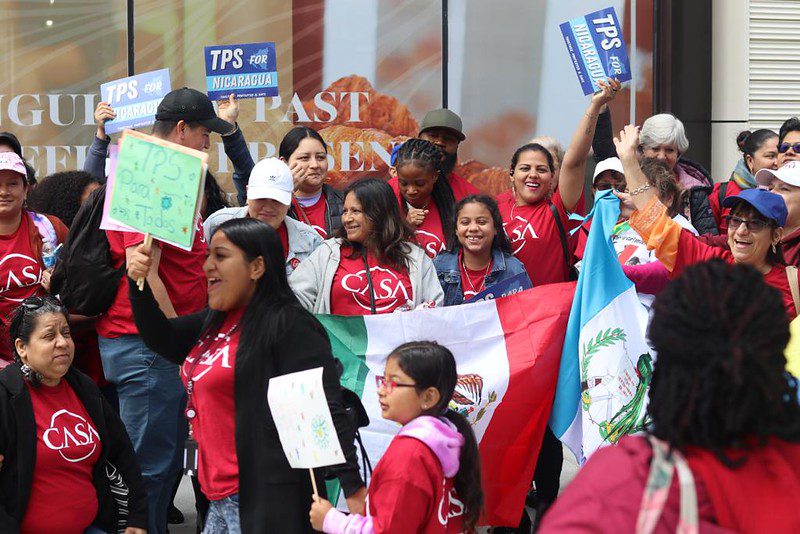
The campaign is a powerful example of CASA’s model of strategic coordination in timing, mobilization, target identification, outreach strategy, escalation efforts, messaging, and more. CASA engaged (and continues to engage) and targeted key leaders throughout the Biden administration, from key staff in the Department of Homeland Security, to the President’s office, as well as other key secondary target audiences in the White House.
Examples of CASA’s and the coalition’s powerful actions include our May Day 2022 mobilization in front of the White House and march to the Senate, and the Children’s Day press conference on June 13th, in which children whose parents were in need of temporary protected status (TPS) met with White House officials, speaking bravely and touchingly about their love for their families.
At the base of all of CASA’s TPS work is grassroots organizing and leadership development. For years, the conversation on TPS had largely focused on achieving permanent status for current TPS holders. Because of the potential for new TPS designations and re-designations, the new Central America campaign engages undocumented Central Americans, some who have lived in this country for decades, and others recently arrived. The success in the Central American campaign would mean protection for millions of people with a legally vulnerable status in this country currently.
The Ramos Decision and a New Focus
A step along the long pathway to TPS for Central America came in June of 2023, when the Department of Homeland Security (DHS), finally heeding public pressure on the Biden administration led by CASA and the National TPS Alliance moved to extend, but not re-designate, TPS for El Salvador, Honduras, Nepal, and Nicaragua. The decision to extend these designations was necessary to improve the status of just under 250,000 residents of the U.S. who have been living in limbo since the former administration attempted to terminate TPS for these countries. While all of those individuals benefiting from this decision had already been enjoying TPS (in the case of the Central American nationals, for decades), this decision extended that protection, while leaving hundreds of thousands who would have been eligible for TPS without it.
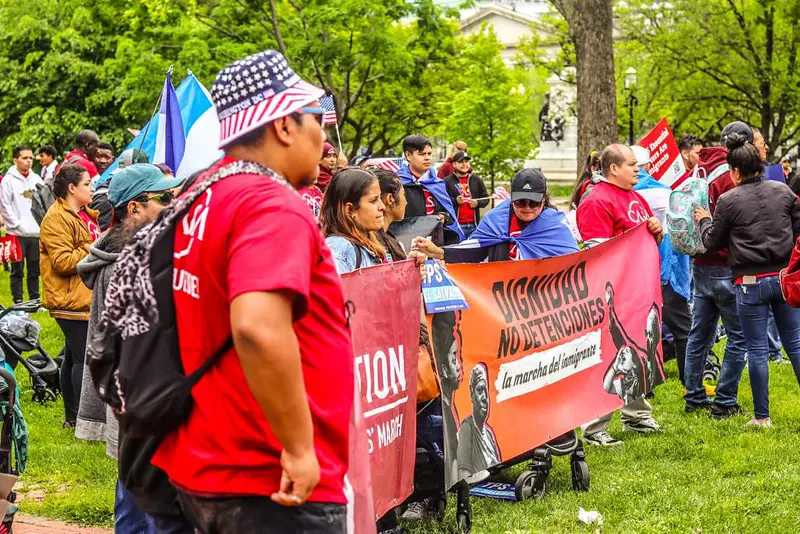

CASA is proud to announce the launch of its new Political Leadership Academy. Building upon CASA’s history of staff successfully running for political office, the Academy will identify, train, and support CASA-affiliated immigrant and working-class political leaders and candidates. The program’s goal is a future in which dozens of immigrant and working-class leaders will win seats in local and state elections, staffing campaigns, and serving as political advisors. With the coaching of our existing organizers and state-based staff, CASA candidates will be claiming seats from the top to the bottom of the ballot, both within the CASA footprint (MD, VA, PA, and GA) and beyond.
Through individual workshops and longer cohort experiences, the Academy’s curriculum covers a variety of topics, including skills-based training on political storytelling, defining immigrant power, and the role of different civic, governmental, and private actors. Furthermore, the Academy engages with regional partners and allies to assist participants with gaining hands-on experience and additional training as well as securing meaningful staff roles in 2023-2024 political campaigns.
The Academy plans on training over 1,000 unique CASA members and allies over the next five years and, by 2028, having 125+ trained leaders actively pursuing political leadership and 40 sitting in positions of political power as staff on campaigns, as elected officials, and as influential policy-deciders. Since its launch in March of 2023, the Academy has delivered over 800 participant hours of training to over 150 unique individuals from ten different states. In July 2023, the Academy graduated its first class of its CASA Campaign Leadership program, with six graduates from four different states.
One of those graduates is Claudia Rivera of Miami, Florida. Claudia has been a CASA member since 2021, and has been an active participant in our National Member programming, including marches and meetings with members of Congress. She was inspired to complete the CASA Campaign Leadership training in part because she wants to be “un Factor de Cambio en las política antiinmigrante, especialmente en Florida ya que no pretende ser sencillamente espectadora de la normalización de políticas que afectan la Comunidad Inmigrante a la cual orgullosamente pertenece” (“a factor of change in anti-immigrant policies, especially in Florida as she does not intend to simply be a bystander to the normalization of policies that affect the immigrant community to which she proudly belongs.”)

In Fiscal Year 2023, CASA reaffirmed its dedication to strengthening the workforce by significantly expanding opportunities for CASA members to access vocational and workforce training in two critical areas of economic growth: the emerging green economy and healthcare.
New Green Economy
Ensuring our members are prepared for the transition to a green economy is a major organizational priority for CASA, which remains steadfast in its commitment to provide green workforce, vocational training, and education to working-class and immigrant communities. CASA has implemented worker training programs in which community members can take courses and earn certifications in weatherization and high-efficiency HVAC systems, among other skills to facilitate the creation and retention of high-quality, well-paying green jobs.
CASA’s workforce programs support more than 2,500 workers annually, earning vocational certifications in fields such as Building Maintenance Engineer, HVAC, Electrical, Home Improvement Licensure, Estimating for Construction, Blueprint Reading, Solar Panel Installation, Computer Repair, and Child Development. With the certifications received through our program, many workers go on to start their own sole proprietorships and small businesses, often returning to CASA centers to hire additional workers and generating new job opportunities. Workers also receive soft-skill training in interview preparation, GED assistance, and computer literacy. Through green workforce development training and certification, CASA members are well-positioned to access new energy efficiency careers in the green job sector and even establish their own enterprises, thus contributing to equity and elevated living standards as the U.S. advances its decarbonization, weatherization, green energy, and housing infrastructure efforts.
Healthcare
CASA’s Community Health Worker (CHW) and Certified Nursing Assistant (CNA) training programs arose as a natural extension of our health services, incorporating both community demand for vocational training in high-demand industries and the need for a broader range of linguistic and cultural competencies in the health sector. These healthcare careers raise the economic floor of new CNA’s entire families while simultaneously ensuring the inclusion of more immigrant voices in healthcare spaces, which will improve system engagement and health outcomes among a wider range of patients.
